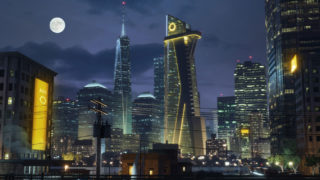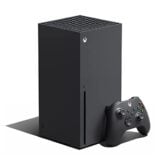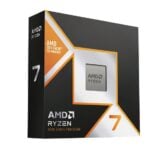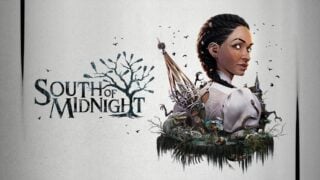Review: Marvel’s Avengers forces the world’s mightiest heroes on a tedious grind
Square Enix’s superhero blockbuster feels like it cares more about economy than its experience
- Creative director
- Shaun Escayg
- Key Credits
- Vince Napoli (Combat director), Scot Amos (Head of studio)
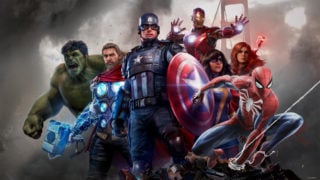
Disclaimer: This is a launch review of a large service game that is likely to receive significant post-launch content. The game experience will possibly evolve as the game’s developer adds and changes its systems over the following months. This review is accurate as of the launch window.
There’s something strangely honest about the opening scenes of Marvel’s Avengers.
You begin playing as a young Kamala Khan (later to become Ms Marvel), who’s been selected as a finalist in an Avengers fan fiction competition and invited to an illustrious event celebrating the world’s mightiest heroes. What she encounters on arrival could be seen as a stark warning of the game’s suffocating corporate cynicism.
As Kamala, you scamper around an Avengers-themed fair, searching the stalls for a set of comic books that grants access to a VIP area. You explore a little and complete a few simple tasks to open the boxes containing your rewards. In hindsight, prioritising this treasure hunt over any action is a statement of intent – Marvel’s Avengers is a game about opening boxes to level up.
The fair also reveals a truth about the Avengers themselves, as it shows them primarily as a marketable product, guaranteed to draw a large crowd and sell merchandise. This feeling becomes more real when Kamala bumps into some of the Avengers while searching for comics. They don’t look like the Avengers; they look like costumed salespeople employed to shift stock to fans.
In fairness, the characters aren’t really badly drawn or written, but because the game fails to put its own spin on them, they only ever feel like low-budget copies of their movie counterparts. It’s the same with the story, once it eventually unravels with plodding inevitability and a ridiculous villain. You might wonder if there really was a kids’ fan fiction competition, and you’re playing through the winning entry.
This first 10 minutes feels like a dizzying meta-statement, but it’s quickly swept away once the action starts. A terrible event occurs, the timeline skips forward five years, the Avengers have disbanded. Kamala, now with powers, gets herself embroiled in a conspiracy that leads her to bring the band back together again.
You’re now enveloped in a multi-character third-person action game that stitches together God of War and Destiny with fragments of Uncharted to form a tapestry of mediocrity. Early on, it focuses on simple jumping, wall running and beam swinging, with brief interludes of hiding behind cover or pushing trolleys. Once the real missions start, you’ll mostly be punching and shooting things.
Fortunately, combat is where Avengers is most comfortable with itself. It really does recall 2018’s God of War, especially when wielding Thor’s hammer or Captain America’s shield, with a comparable level of responsiveness and depth (which is unsurprising, since the game’s combat director also worked on the Sony title). Naturally, every character has an array of short-range combos, leaping attacks, parries and a long-range option, as well as support and offensive special moves on a cooldown system.
Mildly impressive here is how Crystal Dynamics have fitted the game’s six characters around a consistent control scheme while making them feel different to play. Hulk is a crazed force of nature, chucking around masonry or grabbing an enemy before hammering it into its colleagues. Iron-Man is stylish and deliberate as he mixes up punches with pulse shots. Black Widow is suitably agile, with a cloaking move and a grappling line that reels her towards foes.
“The Avengers only ever feel like low-budget copies of their movie counterparts. It’s the same with the story… You might wonder if there really was a kids’ fan fiction competition, and you’re playing through the winning entry.”
In full flow, you do feel like a superhero, and even the inevitable skill trees seem well-judged to gradually increase the sophistication of your offensive options. The problem is that, as scenes get increasingly busy, with up to three companions and a dozen enemies in play, full flow becomes a rare commodity.
Inundated by coloured attack warnings and pelted by gun drones, it’s near impossible to keep track of everything. Enemies teleport, unblockable attacks suddenly appear amidst blockable ones, allies obscure your view. You can hardly avoid being blindsided, and it’s especially irritating when playing as Hulk or Thor, who are far too destructible. What kind of god of thunder has to run for health top-ups after getting smacked from behind by a robot?
Talking of robots, you’ll be fighting a lot of them, and not much else. Sure, there are many different kinds of robots, but few are tactically interesting once you’ve met them a few times. Even in the big campaign setpieces, where everything is exploding in the background, you rarely have to do much except smash more robots, then make a dramatically staged dash to safety. A couple of decent late-game boss battles can’t hide that Marvel’s Avengers is sorely missing a proper cast of supervillains.

Still, much of the 10-hour campaign feels quite breezy, but that’s mainly because you get a steady supply of different characters to play around with. It’s certainly not down to exciting mission design. Objectives include defeating waves of enemies, defending friendly NPCs from waves of enemies, holding a position against waves of enemies, and destroying generators while enemies attack, in waves. You get the idea.
In team play, you might put some effort into organising priorities and positions. Or in open maps you might split up briefly to seek out resources. Regardless, it won’t be long before you realise you’re touring identical scientific facilities mission after mission, meeting in the same elevators, and discovering the same adversaries behind the doors.
But then, Avengers is really a game about opening boxes. Yes, as the Incredible Hulk or Iron-Man, you will spend time diligently scanning the scenery for breakable crates that burst to yield tradeable resources, and chests that pop to reveal nondescript bits of equipment that push your stats up a single notch.
“It feels like more care has gone into the game’s economy than its experience. Someone must have worked hard to ensure the little chime when you open a box, and the gleaming icon that appears, felt just right.”
This Game as a Service structure looms over the campaign, detracting from the superhero experience and forcing the story to fit around its needs. You soon create a base on the Helicarrier, which quickly fills with vendors and factions (e.g. SHIELD) offering optional team missions and daily challenges.
The grind of excavating and investing endless stuff begins. If you don’t collect the trinkets, your power level won’t increase, slowing your post-campaign progress. (There are also various cosmetic options on offer for real money, and they’re disturbingly expensive.)
In the end, it feels like more care has gone into the game’s economy than its experience. Someone must have worked hard to ensure the little chime when you open a box, and the gleaming icon that appears, felt just right. And in case you get distracted by actually playing the game, your AI earpiece JARVIS will sporadically chip in reminding you there’s a chest nearby, or a message will flash up explaining you have better gear to equip.

For its aimless loop, Avengers is willing to sacrifice refined combat systems, interesting characters, or smart mission and enemy design. Even a smooth experience. Its frame rate is wobbly in big fights, and assets often load in late in cut scenes, while objectives are poorly communicated and tutorial hints inconsistent.
Square Enix clearly hopes it can ride the star power of Marvel’s characters and keep adding content to make this title relevant for years. But it’s not easy to see where that potential lies. More characters will come for sure, but what will they do? Take part in endless mass brawls?
The ability to grapple, fly and even pull objects around suggests some scope for variety, but with no non-combat skills such as stealth or hacking, tactical options and objectives will remain limited. If Avengers is ever going to provide anything as complex as Destiny’s Raids, there’s a ton of work to do, and no indication that anyone intends to do it. So far, its idea of complexity is hitting a series of switches to open a treasure vault.
Marvel’s Avengers is soulless, even when it’s competent. Its single vaguely imaginative concept is that it tells the story from Kamala’s perspective. Her enthusiasm, as equal parts Avengers fan and budding superhero, is infectious. But that makes us wonder. Is Kamala’s character itself another cynical piece of design, aiming to persuade players that this adventure is more exciting than it is? If it is, it doesn’t work for long.
Marvel’s Avengers offers a reasonably entertaining campaign, but it’s highly derivative. Everything in it has been done better elsewhere. And the longer it goes on, the more it’s hampered by desperately repetitive missions and a mindless upgrade structure.
- Character move sets are intricate and distinctive
- Decent length single-player campaign
- Story and character design feel cheap
- Combat gets messy and confusing
- Repetitive enemies and missions
- Tedious and cynical upgrade system







